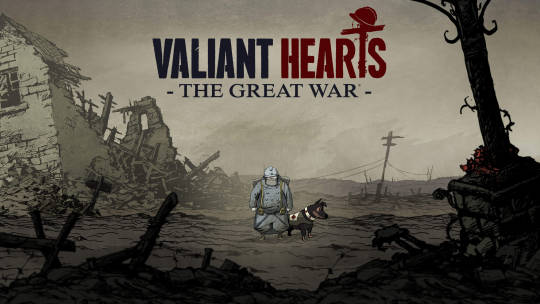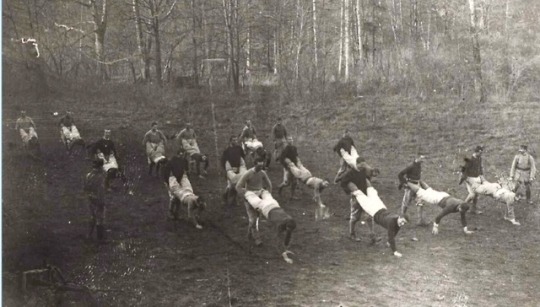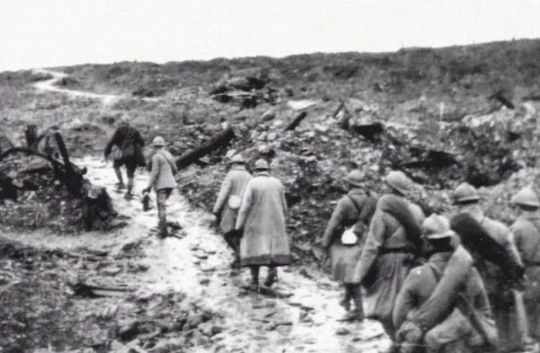#book: paroles de poilus
Text
In Memoriam
First there were the sparkle of a new century; the splendour of the Universal Expositions; the race to progress; the series of calm, serene Sundays; the swaying gait of the Apaches and of the hips of dactylos on a spree in the guinguettes of the banks of the Seine or the Marne. Trips to the mountains or to spa towns, for a sunny Sunday. The trend of sea baths; again and forever, a time of long dresses, hat pins, hat veils and sunshades to protect oneself from the sun; the first fevers of the metropolitan; the magic of tramways. A smell of rail and electricity.
There were the shapes of the Art Nouveau, the fashion of stem-like women with vegetal curves, who were starting to escape and free themselves from their corsets. Parisian ladies had large hats and tiny feet. Men were smoking their first Gauloises. There were of course, riots and strikes: electricians, civil servants, site workers, postmen, bar waiters, taxi drivers. Men wanted to build and shape their destiny. They wanted a better share of the riches of the world.
There was the Montmartre of the painters and the Bateau-Lavoir; the first aerial meetings; the Paris flooding; the comet of Halley passing by; the appearance of the first tangos; the first music halls; the inauguration of the Vél'd'Hiv and the Gaumont Palace; the theft of the Mona Lisa; the end of the Bande à Bonnot; the publication of La Guerre des Boutons; the meeting between Yvonne de Quiévrecourt and Alain-Fournier under the trees of the Cours La Reine, which so narrowly missed the Goncourt prize; the first phone cabins; the electrification of the railway; the first Michelin maps; the fashion of caps et boaters; the invention of esperanto.
It was peace. The promise of a new dawn, the carefree spirit of summer, the peace of fields spattered with cornflowers and poppies which were waiting the sickle of the harvester or the knife of the thrasher.
They were seventeen, twenty-five, or thirty. Many wore their hair short, and moustaches. Many had the rough neck and hands of the worker, a laborer's worn fingers, a turner's or mechanic's broken nails. There were grooms, land surveyors, bakers, butlers, office boys, clerk notaries, butchers, schoolteachers, peddlers, copywriters, cow keepers, porters, shepherds, priests, grinders, cooks, toolmakers, clerks, chauffeurs, footmen, tinsmiths, deliverers, boilermakers, newsboys, barbers, railway workers, waiters, postmen, intellectuals, factory workers, bourgeois, aristocrats and saddlers.
Suddenly there were civilians, career soldiers, conscripts, reservists, artillery men, navy men, infantry men, zouaves, aviators, pioneers, stretcher-bearers, liaison officers, telegraphers, non-commissioned officers, submariners, cooks, adjudtants, generals, lieutenants, chaplains, canteen-workers, cavalry men, bleus, rappelés, permissionnaires, etc… Suddenly, were the Poilus.
Their handwriting was round or sharp; it had the delicacy of the quill or the thick stroke of the ink pen. Their names were Gaston, Jean, Auguste, Marcel, Louis, Alexandre, Edmond, Martin, Antoine, Etienne, Maurice, Albert, Henri, Roger, René… Their wives or their mothers were named Félicie, Léontine, Hortense, Louise, Honorine, Clémence, Marguerite, Berthe, Germaine, Yvonne, Marthe…
All of them travellers without baggage who had to leave their families, their fiancees, their wives, their children. Leave there their office, their lathe, their kneader, their workshop or their stable. Don the poorly cut uniform, the garance trousers, the bumpy képi. Take on the too heavy barda and put on the cleated shoes.
They knew very soon that this war was senseless. From false hopes to false hopes, from last battles to last battles, they ended up unable to project the end of the war whose actors they were, and whose usefulness wasn't so obvious anymore to them.
Out of eight million mobilised between 1914 and 1918, over two million young men never saw again the belltower of their village. Their names are carved in the cold stone of the monuments of our cities and towns. And when the church goes quiet, when the school is closed, when the train station is shut down, when silence reigns over these places that became hamlets, remain these lists of words, these lists of names and surnames keeping the memory of a France whose countryside was so populated.
Over four million men survived only after they suffered grievous wounds, their body broken, amputated, marked, bitten, their flesh torn, when they weren't seriously mutilated. Others got out apparently intact: they still lived with the memory of the horror they had lived for over fifty months, the memory of blood, of the stench of rotting corpses, of the bursting of shells, of stinking mud, of vermin, the memory of the obscene smirk of Death. They had for them the systematic and reoccuring lash of nightmares for the rest of their days and with it the anguished, unanswered cry, the cry for their mothers. They lived with the words reminding them of sights whose horror they would never forget: Galipoli, Verdun, the Chemin des Dames, Arlon-Vitron, the mill of Laffaux, the Somme, Ypres, Péronne, Montmirail, Douaumont, the Fort of Vaux…
Over eight thousand people answered the call of Radio France: eight thousand letters, meaning that many families searching, into a coffer in the attic, between the yellowed pages of family photo albums, for the memory of their fathers', grandfathers', ancestors' lives.
These words written in the mud aren't eighty, or eighty-five years old; they are one day old. They have the whole strength of a life all the more intense since it was so close to the abyss, since it was looking at death every second.
We do not claim to do a historian's work by gathering in a few weeks so many powerful and intense documents: our purpose is before all humanist and literary. We simply meant to let these cries of the soul, entrusted to quill and crayon, be heard, like so many bottles thrown to the sea, which should stimulate for future generations the duty of memory, the duty of vigilance, the duty of humanity.

Jean-Pierre Guéno- Paroles de Poilus- Lettres et carnets du front 1914-1918
#xx#jean-pierre guéno#book: paroles de poilus#la grande guerre#ww1#i'm sorry the translation is rough and hurried
4 notes
·
View notes
Text
Valiant Hearts: The Great War

Paroles de Poilus
Valiant Hearts is a game about the First World War, in the form of an animated cartoon, in which you follow the journey of four characters as they try to help each other survive and return to their families. While the game is rather varied in terms of gameplay, I found it very indecisive in its approach to this historical period.
❤ The artistic direction, supported by Paul Tumélaire's drawings, is truly superb. The animations are fluid, the scenes are full of detail and the depth of field in the battle scenes is really well done.
❤ The auditory experience is just as good. The music is powerful, and the wartime sound effects are just as loud and effective at giving you an idea of what the soldiers were going through. In terms of dubbing (French), having Marc Cassot as the narrator is already perfection. But we also have dialogue in the form of gibberish mixed with words according to the language of the characters, which adds a touch of humour but often allows each regiment to be clearly differentiated, which is a good idea.
❤ The last part of the game is, in my opinion, what the whole game should have been; the staging is macabre, the pressure is constant and the emotion is very present without going into pathos.
❤ The main characters, including our adorable doggie, are endearing and their intertwined stories work very well to develop the chemistry between them.
+/- I find that the game doesn't quite know where it stands. We can have a non-Manichean story where the war is really depicted on a human scale, with all its horrors and showing how it can change a person. But on the other hand, there's this caricatured side that comes in very abruptly from time to time, with a much more comic-book feel and situations that are no longer at all rooted in realism (particularly through the German baron who appears to be the boss to beat and who makes us lose this aspect of neutrality).
+/- The gameplay is very varied, but doesn't go far enough for my liking. The puzzles aren't very hard, even if some are a little more brain-teasing than others, but above all they all work in pretty much the same way. However, interacting with the little dog to solve some puzzles was really fun. The rhythm games in the car or when healing brought a bit of change, but were a bit long-winded. And the "platforming" phases during battles are really cool, but a lot of them are "die & retry", so it gets pretty repetitive over time.
+/- I really appreciated the educational aspect of the narration, as well as the history sheets that you can unlock throughout the game, particularly with the collectibles. In this way, you can learn about changes over the years, such as the choice of weapons and changes in uniforms, as you play. On the downside, I'm sorry to say that the file interface is very ugly and not well organised for finding information.
✖ Several times I had interaction glitches with objects, which forced me to restart my game because otherwise I'd get stuck.
✖ I found some of the actions very imprecise (especially digging and throwing).
✖ On PC, Ubisoft requires us to install Ubisoft Connect in order to launch the game and synchronise our saves. As a result, no achievements are available on Steam. That's a big negative point for me.
So here we have a game that takes us back to the Great War, making sure that we really feel its atrocities, but also the moments of hope, marked by mutual aid and the friendships formed. But in my opinion, the narrative is too changeable and I would have appreciated a more consistent tone. Even so, it's a good way of revisiting this part of history in an entertaining manner, which is a fine tribute to our Poilus.
youtube
➡ My Steam page
4 notes
·
View notes
Note
Hi, weird question, I've been having a hankering to make a WWI OC lately but. I have. Very limited knowledge on the topic ;w; I was wondering where some good sources to start poking around would be? Fwiw. I'm specifically thinking of making a guy from France or Luxembourg or something around there.
Hi! I'm not the best person to answer your question (I'm far from being a historian or even a historian amateur) but I'll try my best to help by giving you some advice!
First of all, I suggest you get a general idea (even if it's vague) of the important events of the Great War, and then concentrate on the details you want to explore.
If you aim to create a soldier, I suggest you situate him in space, or at least get an idea of the battles in which he took part (if he's French, the probability that he took part in the Battle of Verdun is very high). To do so, and to deepen your knowledge of the subject, I recommend watching documentaries (on YouTube, for example). Of course, there are some good films on the subject, but they're often romanticized, which is why I recommend documentaries instead. If you have the opportunity, I recommend reading books too, even if they don't deal directly with soldiers of your OC's nationality. I can't resist recommending the book All Quiet on the Western Front, by Erich Maria Remarque. This book plunges you into the atmosphere of the end of the war and gives you an insight into the soldiers' living conditions.
Another subject that might interest you is uniforms. French uniforms changed drastically over the course of the war. It's interesting to understand why (and even how they evolved before the war) and to know how to situate uniforms in time. A good source of information on this subject is the Musée de la Grande Guerre (their YouTube channel; their website).
Something that's very important to do when creating a character who has experienced traumatic episodes is to try to understand their state of mind. That's why I strongly encourage you to read the soldiers' letters to their families. There are books that contain compilations of letters (a book I haven't had a chance to read yet, but I'd like to, is Paroles de Poilus), but you can also find some letters on the Internet (for example, here. It's in French, I'm sorry!).
I hope it helps, or at least serves as a starting point!
A final note: Never rely on just one source of information! Make sure you have at least two, and that the information doesn't contradict each other.
Good luck :]
4 notes
·
View notes
Photo

“Our new colonel is a rookie from Belfort and has never seen a single boche up-close. So we’re in good hands with such a genius! He still thinks that he is at the caserne and have us exercice from 11am to 4pm, just 5km from the boches! – He wants to treat us like rookies, but the older folks will find a way to calm him down, just as they’ve done with the previous colonel we had last year.”
1918, French soldiers talking about the inaptitude of their abusive superior(s), a prevalent problem in the French Army at this time. Translated from the French book “Les poilus ont la parole: dans les tranchées : lettres du front, 1917-1918″ – Photo : february 25 1918, French soldiers in training… Bibliothèque de documentation internationale contemporaine
23 notes
·
View notes
Text
Letters from WW1
René Jacob was killed in Verdun in 1916. He was the son of a wheelwright and was a baker in Bussy-en-Othe (Yonne). He left behind his wife Lucie, and three children, whose eldest was eight.
1915
How could I describe ? Which words could I choose ? Earlier, we crossed Meaux, still frozen in immobility and silence, Meaux with its laundry-boats sunk into the Marne and its wrecked bridge. Then we took the road of Soissons and climbed the slope which brought us on the north plateau.... And then, suddenly, as if a theater curtain went up in front of us, the battlefield appeared in its full horror.
German corpses here on the edge of the road, there in the gulchs and fields, blackish, greenish, decaying corpses around wich, in the sun of September, swarms of flies buzz; corpses of men who maintained strange positions, knees bent in the air, or arm leaning on the bank of the trench; corpses of horses, more painful yet than human corpses, with bowels spread on the ground; corpses covered with lime or straw, soil or sand, to be burnt or buried. A horrifying stench, a stench of mass grave, rises from all this rot. It seizes us by the throat, and won't leave us for four hours. As I am writing these lines I can still smell it around me, turning my stomach. Vainly did the wind, blowing in gusts over the plain, try to sweep it all away; it could chase away the swirls of smoke that rose from all these burning piles; but it couldn't chase away the smell of death. "Battlefield", did I say earlier. Not battlefield, but slaughterfield. Corpses, this isn't nothing. For now, I have forgotten hundreds of wincing faces and contorted bodies. But what I will never forget, is the ruin of things, the abominable ransacking of cottages, the looting of houses....
René Jacob

Jean-Pierre Guéno- Paroles de Poilus- Lettres et carnets du front 1914-1918
12 notes
·
View notes